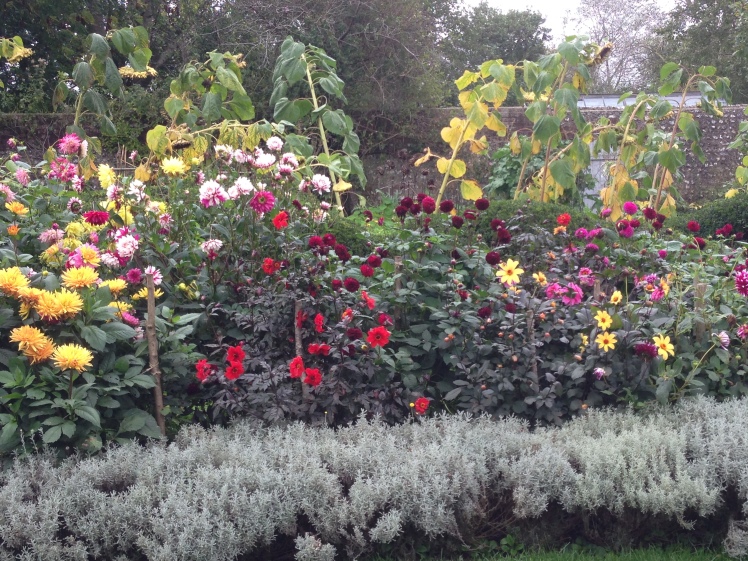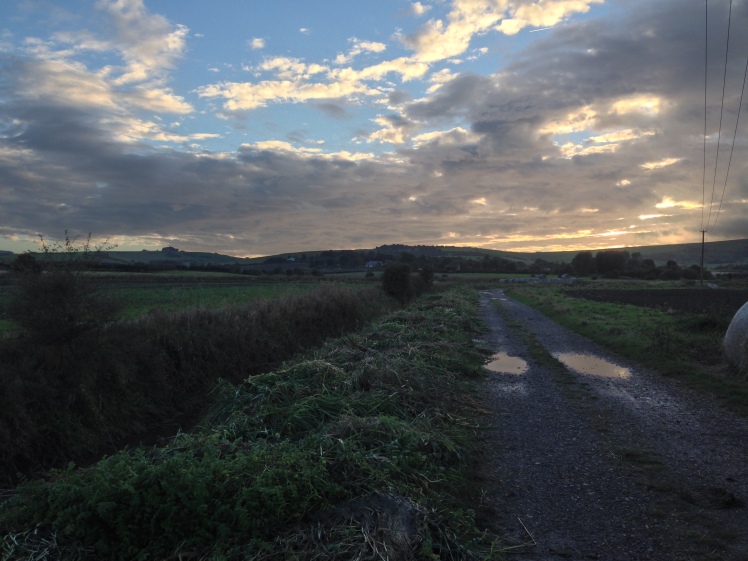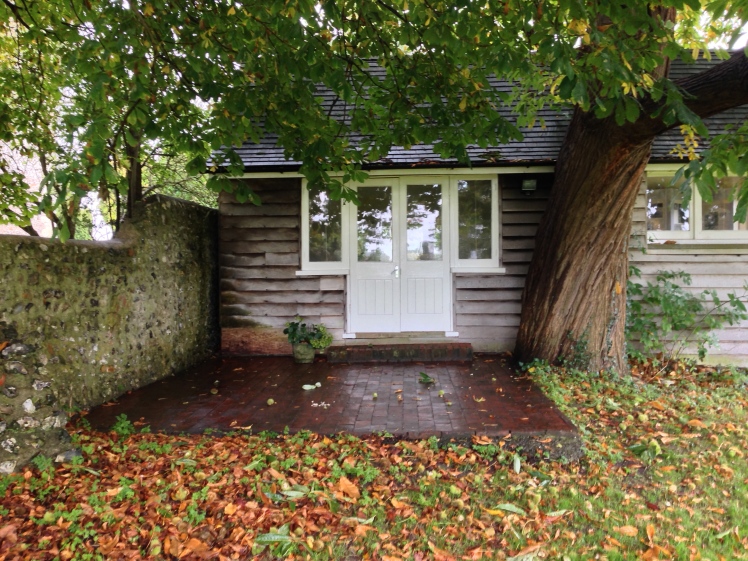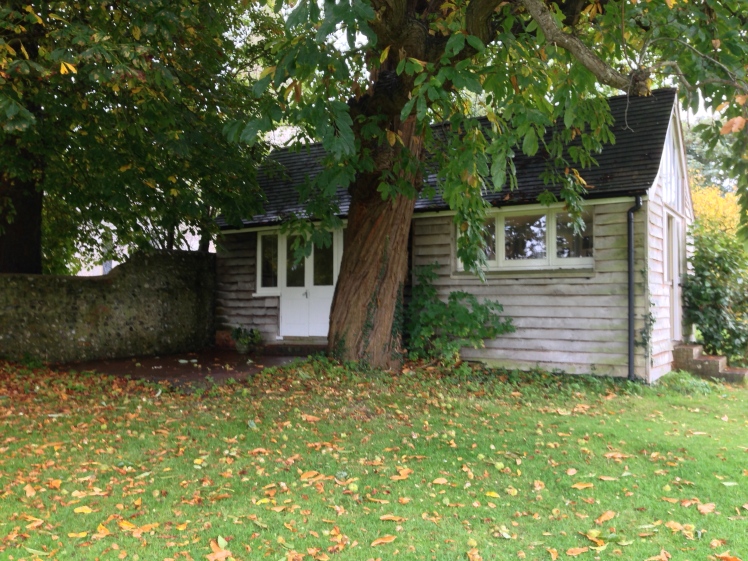To celebrate Virginia Woolf’s birthday today, I thought I would write about something she and I both have a strong affinity for–the natural world. In 2014, I wrote my Master’s thesis on The Bloomsbury Group and their connection with nature, more specifically the important role that nature played in their art and literature. I visited England and met with several family members of the original group. I also met one of the gardeners, Mark Divall, who helped restore the Charleston Farmhouse gardens in the 1980s. He later became the Head Gardener and maintains the gardens beautifully. This research trip was an unbelievable experience for me. If you ever get the chance to visit Charleston Farmhouse and/or other Bloomsbury locations–do. They were a fascinating, talented, and diverse group that lived lives that included so much beauty.

Below are a few excerpts from my paper that contain some of my favorite Virginia Woolf nature quotes and recollections. She certainly had an extraordinary way of articulating her words, even at a young age. She had a brilliant, curious mind and understood the depth of human psychology. All of that shows up in her short stories, essays, and novels. She continues to be an inspiration for writers. Happy Birthday, Virginia Woolf. And thank you.
Virginia’s intense connection with nature is evident in her early journals. While spending the summer of 1903 at the Stephen’s country residence, Netherhampton House, Virginia wrote these words in her diary:
We have become absorbed by the spirit of Nature, let us say—
a vast quantity of it is distilled by these fields & downs;
we inhale it peacefully. We spend so much of our time out of doors too,
that we become sensitive to the various changes of temperature…
the wonderful rise & swell & fall of the land. It is like some vast living
thing, & all its insects & animals, save man, are exquisitely in time with it.
If you lie on the earth somewhere you hear a sound like a vast breath,
as though it were the very inspiration of earth herself,
& all the living things on her (203 PA).

These friends had a unique connection with nature not easily defined in concrete terms. Although, I have attempted to at least give an idea of this sometimes-contradicting relationship, I think Hermione Lee best describes and sums up their feelings succinctly when writing about Virginia. Describing Virginia’s diary entries, Lee explains that Virginia’s “country notes are unflinching, not idyllic—a chicken is found with its head wrung off, a hawk has dropped a dead pigeon, butterflies feed on dung” (379 Lee). Virginia used her Diary for what she called “seeing life” (380 Lee).
From an entry dated 8 Sept 1918:
“I remember lying on the side of a hollow, waiting for L. to come & mushrooms, & seeing a red hare loping up the side & thinking suddenly, ‘This is Earth life.’ I seemed to see how earthy it all was, & I myself an evolved kind of hare; as if a moon-visitor saw me” (379 Lee).
Vanessa, Duncan, Leonard, and Virginia truly “saw life” and they viewed it through the lens of the natural world.
Virginia wrote an article on Thoreau commemorating the 100th anniversary of his birth for the Times Literary Supplement. She emphasizes several things that she values about the way he lived his life. She writes, “Living with the herd and adopting habits that suit the greater number is a sin—an act of sacrilege. What has civilisation to give, how can luxury improve upon these simple facts? ‘Simplicity, simplicity, simplicity!’ is his cry” (V. Woolf Essays 132-140). She called him a noble rebel and a wild man who would never allow himself to be a tame one. She appreciated that he “let life take its own way unfettered by artificial restraints” and “by laboring for forty days he could live at leisure for the rest of the year” (132-140). Perhaps she felt a kinship with Thoreau, or at least his ideas—a longing for a simple life lived close to nature and not living for society’s approval. Thoreau’s life reflects many of the ideals of Bloomsbury Group.
The most appropriate way that I know of to end a paper in which there is so much more to be said about its topic is to use yet another timely quote from the ever-eloquent, always articulate Virginia:
I don’t often trouble now to describe cornfields and groups of harvesting women
in loose blues and reds and little staring yellow frocked girls. But that’s not my eyes’ fault: coming back the other evening from Charleston, again all my nerves stood upright, flushed, electrified (what’s the word?) with the sheer beauty–beauty abounding and superabounding, so that one almost resents it, not being capable of catching it all and holding it all at the moment. (VWD 1925-1930 158)
By “holding it all at the moment”—beauty, friendship, art, and nature—The Bloomsbury Group created lives of meaning and purpose with far-reaching influences. Their multidisciplinary work remains relevant today and the world is a richer place for having had them here.


Featured image of Virginia Woolf in the garden was sent to me by a friend. I cannot find a source to credit. If you know the source, please let me know.
All other photos mine taken at/near Monk’s House and Charleston Farmhouse in Sussex, UK.